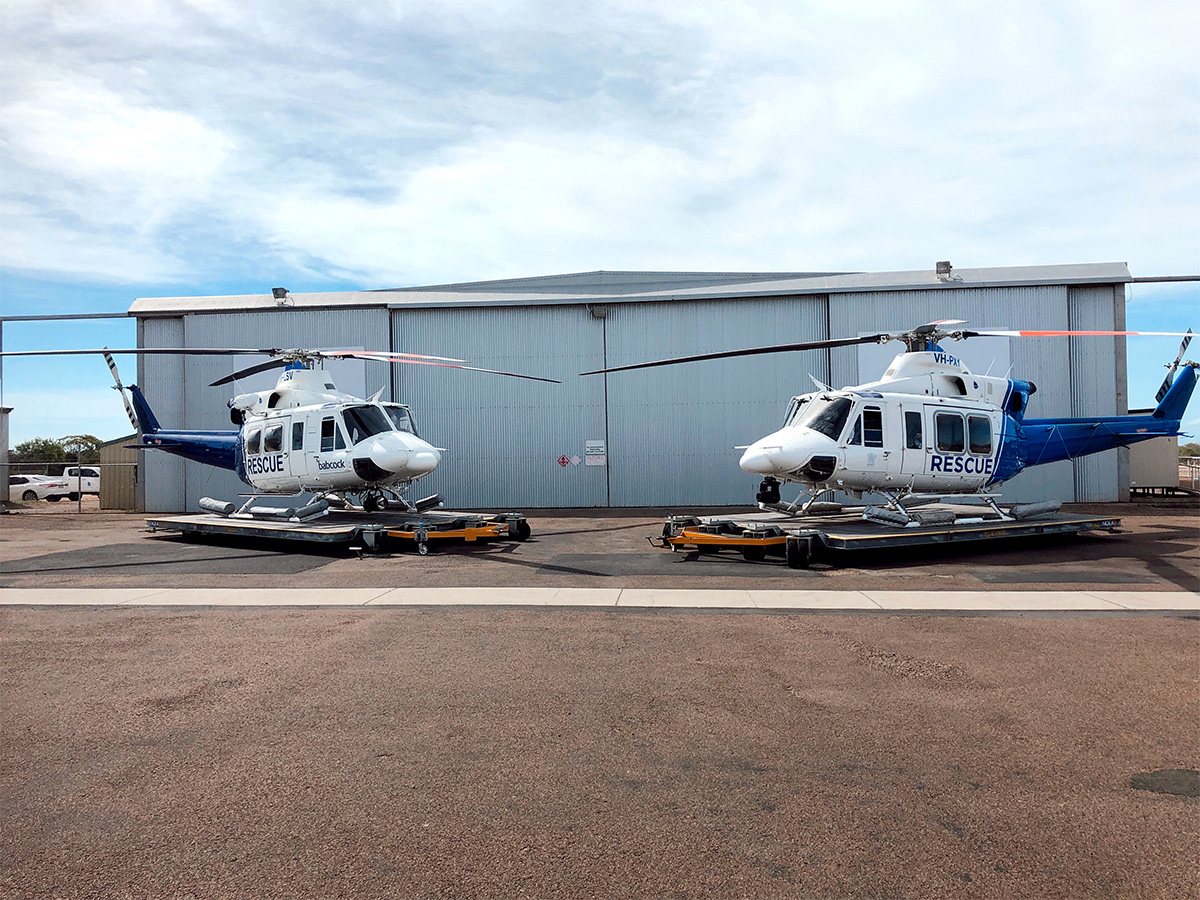Babcock Australasia’s Helicopter Emergency Medical Services (HEMS) contract with the Queensland Government has been extended by three years, ensuring ongoing and improved access to emergency medical services for communities in the Torres Strait and Northern Peninsula regions.
Babcock will continue to deliver aerial support for emergency medical services (EMS), including inter-hospital transfers, primary medical evacuation and search and rescue (SAR) to regional and remote communities through to June 2024.
In addition to the extension, the Queensland Government has provided a $1.34 million funding boost that will also provide a second dedicated mission-modified Bell 412 helicopter, both of which operate from Babcock’s purpose-built facility at Horn Island Airport.

Babcock Australasia’s Managing Director – Aviation & Critical Services, Darren Moncrieff, said Babcock has delivered a reliable rescue helicopter operation to the Torres Strait community since 2007.
“Babcock’s highly skilled pilots, aircrew and rescue officers assist the doctors and paramedics on aeromedical retrievals, search and rescue, emergency and counter disaster taskings. They work as an integrated team to transfer patients, including winching operations, to retrieve patients or persons being rescued,” Mr Moncrieff said.
“Our operations are around the clock, with crews flying more than 600 hours and responding to more than 430 missions per year.
“Babcock’s team performs both day and night operations, which can prove challenging in the Torres Strait – a region that is prone to extreme weather conditions and where transportation to hospital facilities is limited. The knowledge and experience of our pilots ensure the flight routes are planned and conducted safely and efficiently.
“This contract extension builds on a longstanding 12-year relationship with Queensland Health.”
Executive Director of Queensland Health’s Aeromedical Retrieval & Disaster Management Unit, Dr Mark Elcock, said the contract extension and additional helicopter will ensure continuity of vital services to Australia’s northernmost communities.
“Providing health services can be a challenge because of the distance between the region’s main hospitals and outer-lying islands, so it’s critical that we have an emergency helicopter service that is reliable, available and experienced,” Dr Elcock said.
“We have that in Babcock, which has provided exceptional aeromedical support for the past 12 years, helping us save countless lives.”

